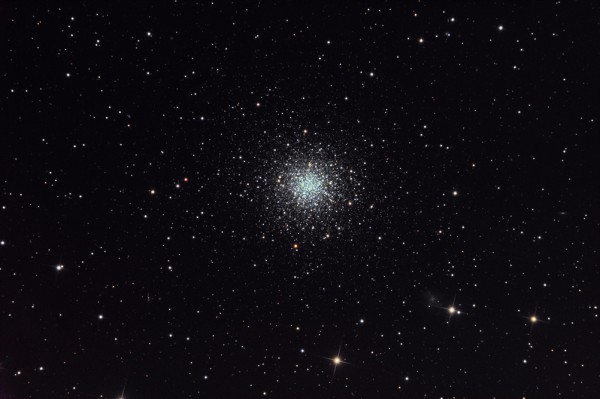“A friend who is far away is sometimes much nearer than one who is at hand. Is not the mountain far more awe-inspiring and more clearly visible to one passing through the valley than to those who inhabit the mountain?” -Khalil Gibran
When you think about globular clusters, you normally think about great collections of hundreds of thousands of stars located in the halo of our galaxy, spherically distributed.
 Image credit: user Antilhue from Chile, via Astrosurf, at http://www.astrosurf.com/antilhue/m68.htm.
Image credit: user Antilhue from Chile, via Astrosurf, at http://www.astrosurf.com/antilhue/m68.htm.
So what do you do if you discover a loose, faint collection of a couple hundred stars, directly opposite to the galactic center?
Go learn more about this fascinating object: Messier 68!

Such globular clusters that are low in elements above lithium...
Little chance of Earth-size rocky planets?
Would stars in these clusters lack outer regions [sort of beyond 1.5 AU] containing water ice, comets, asteroids & other orbiting objects of interest?